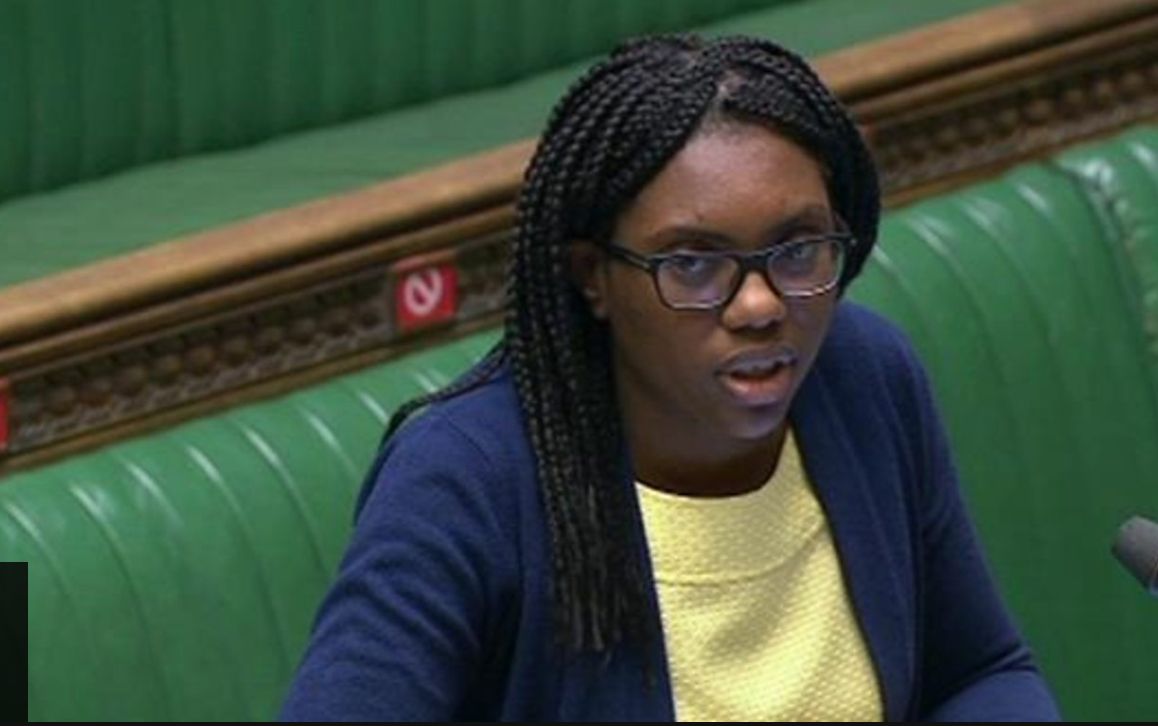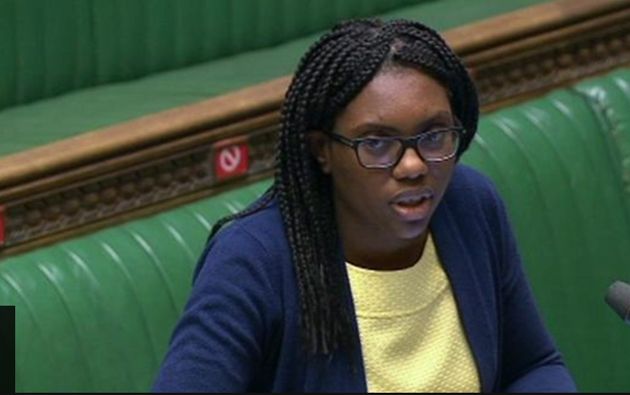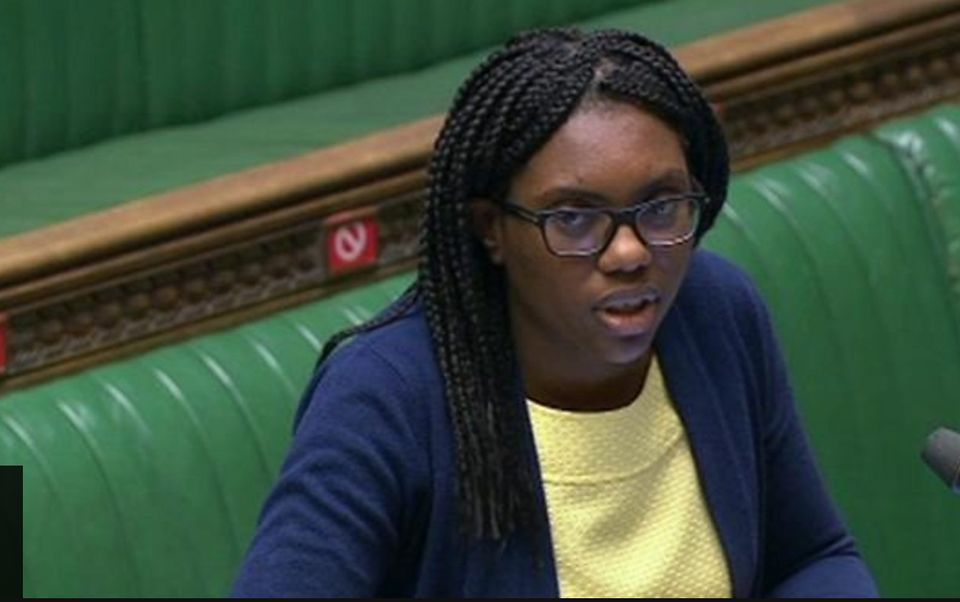
Some people call it “cancel culture”. Others call it accountability. Rightly or wrongly, your Twitter feed can get you in trouble at work, or worse. But we’ve now learned that members of our government are not held to the same standards as the rest of us.
It’s almost a month since Britain’s equalities minister posted an eight-tweet thread filled with false allegations about the conduct of HuffPost reporter Nadine White. Nadine had asked Kemi Badenoch, as one of parliament’s most senior Black MPs and the minister with the portfolio for race and inequality, why she hadn’t appeared in a video aimed at increasing uptake of the vaccine among Black people. She emailed the MP’s office, and the Treasury press team, where Badenoch also holds a ministerial role. Rather than respond via either of those channels, the minister fired off a Twitter tirade about how this routine press enquiry was a “sad insight into how some journalists operate”, describing it as “creepy and bizarre”. Nadine was forced to lock her Twitter account after she received abuse.
It took us a couple of hours to file a formal complaint with the Cabinet Office. It took them three and a half weeks to reply, but at last the government has seen fit to answer our complaint.
Their letter is short and to the point. “I note that the tweets were not issued from a government Twitter account but instead from a personal Twitter account,” writes Cabinet Office permanent secretary Alex Chisholm. “The minister is personally responsible for deciding how to act and conduct herself, and for justifying her own actions and conduct. As such, this is a matter on which the minister would be best placed to offer a response.”
The ministerial code states that “ministers of the Crown are expected to maintain high standards of behaviour and to behave in a way that upholds the highest standards of propriety”. But not, it seems, on their ministerial Twitter accounts.
We were not alone in mistakenly thinking that the minister’s verified Twitter account, in which she describes herself as “Treasury & Equalities Minister”, was in some way linked to her job
How stupid of us. It is cold comfort that we were not alone in mistakenly thinking that the minister’s verified Twitter account, in which she describes herself as “Treasury & Equalities Minister”, was in some way linked to her job. The National Union of Journalists called Badenoch’s original outburst about Nadine “frankly weird, completely out of order and an abuse of her privilege”. The Council of Europe’s Safety of Journalists Platform flagged the incident as a potential threat to media freedom under the European Convention on Human Rights. The European Centre for Press and Media Freedom, recorded the attack as a “violation of media freedom”. I wonder how many of Kemi Badenoch’s 40,000 followers are also under the impression that her Twitter account is a reflection of her professional role and work as an elected representative.
Also mistaken was No.10’s race adviser Samuel Kasumu, who was so upset about Kemi Badenoch’s behaviour that he handed in, but was then persuaded to withdraw, his resignation. Apparently unaware of that Kemi Badenoch’s official parliamentary Twitter account is only “personal”, he wrote: “I believe the Ministerial Code was breached. However, more concerning than the act was the lack of response internally. It was not OK or justifiable, but somehow nothing was said. I waited, and waited, for something from the senior leadership team to even point to an expected standard, but it did not materialise.”
Nadine is a reporter who has done crucial work for HuffPost UK on racial inequality in the UK, not least during the Covid pandemic. So it’s just as well that it was not in a ministerial capacity, but from her “personal Twitter account”, that the minister for equalities made a show of not understanding how news works. Had she only had her professional hat on, she might have remembered that journalists send literally hundreds of requests for comment every day to every institution in the UK in order to find out if a story is accurate. We don’t publish stories without doing this – indeed, no story was published in this case.
It is a little confusing that Kemi Badenoch published screenshots of messages sent to her professional address and the Treasury press office in a “personal” capacity. But it’s certainly a relief that, when she declared to her 39,000 followers that Nadine’s conduct was a “sad insight into how some journalists operate”, and accused HuffPost and Nadine of “looking to sow distrust”, she wasn’t speaking as a government minister – because these claims are not only unbecoming of a senior politician, but betray either an alarming ignorance of how the press fits into our democratic system or a cynical display of bad faith.
In the end, Kemi Badenoch broke her silence by contacting a journalist – not Nadine or anyone from HuffPost, but a reporter at her local paper, the Saffron Walden Reporter. In a statement, she repeated her defamatory allegations about Nadine, this time claiming we had “stoked” a “false story” on social media, claims that were withdrawn from publication when it was pointed out that there was no evidence for them.
This apparently did not trouble her ministerial employers in the Cabinet Office or No.10. Perhaps they might like to clarify whether someone is speaking in an official capacity when they begin a statement with the words “as Equalities Minister”.
It is absurd to any reasonable person to suggest the words of a minister are somehow less accountable if they are written by them on Twitter than a press release, or were given in an interview.
So who is responsible for the actions of the government’s ministers, if not the government? The Cabinet Office was clear: “This is a matter on which the minister would be best placed to offer a response.” No.10 agreed, with the prime minister’s press secretary saying it was “a matter for Kemi Badenoch” –although she added: “That would not be how we in No.10 would deal with these things.”
Kemi Badenoch’s office, however, does not agree that it her responsibility, telling Nadine this week: “She has nothing further to add beyond what is included in the letter sent earlier today from Alex Chisholm to your editor.” The same Alex Chisholm who made it very clear it was for her to respond.
This story is not just about a government machine that is out of touch with the realities of our digital lives. It is absurd to any reasonable person to suggest that the words of a minister are somehow less accountable if they are written by them on Twitter than if they appeared in a press release, or were given in an interview. If any member of the public were to tweet out emails sent to their work address, accompanied by a slew of false allegations, they would expect a swift call from HR. Indeed, someone might like to tell transport secretary Grant Shapps, who formally announces weekly updates to the government’s travel and quarantine policies through his own Twitter account, whose handle he literally read out in Parliament.
The ministerial code, which the government concluded Kemi Badenoch had not breached with her public attack on a journalist doing her job, is built around the loftily-titled Seven Principles of Public Life. Hopefully ministers are asked to read it when they enter office. “Accountability,” reads one principle. “Holders of public office are accountable for their decisions and actions and must submit themselves to whatever scrutiny necessary to ensure this.”
We’re a long way from David Cameron’s famously cringeworthy comment that “too many tweets might make a twat” – ministers of Kemi Badenoch’s generation are all too aware of how useful a platform Twitter is for their political and personal profile. But where they are rightly accountable for their conduct as elected representatives elsewhere in their lives, this effectively allows them impunity online.
The Cabinet Office themselves “noted” to us in their response that “the prime minister’s press secretary has already provided comments on this matter”, suggesting a tacit endorsement of their belief that this is not how a minister should behave. But both institutions apparently felt it was not their place to get involved.
Like a parent banning their teenager’s laptop but leaving them with a phone, Whitehall feels dangerously out of touch in providing such an obvious loophole. Remember next time you see a prospective candidate or councillor cancelled online for tweets they sent at university – our government ministers are allowed to say whatever they like.
Jess Brammar is editor-in-chief of HuffPost UK. Follow her on Twitter @jessbrammar









